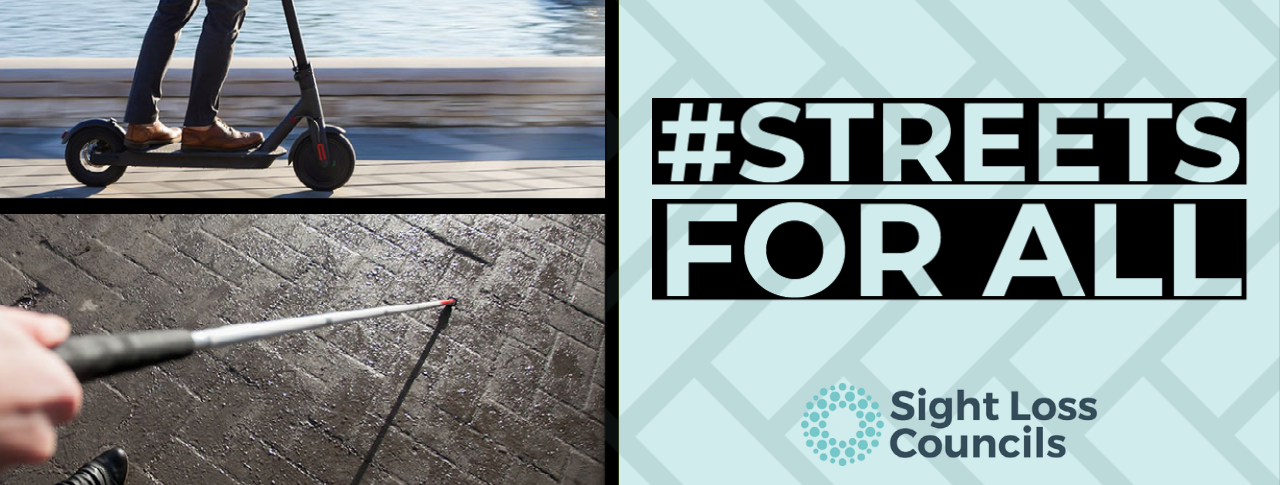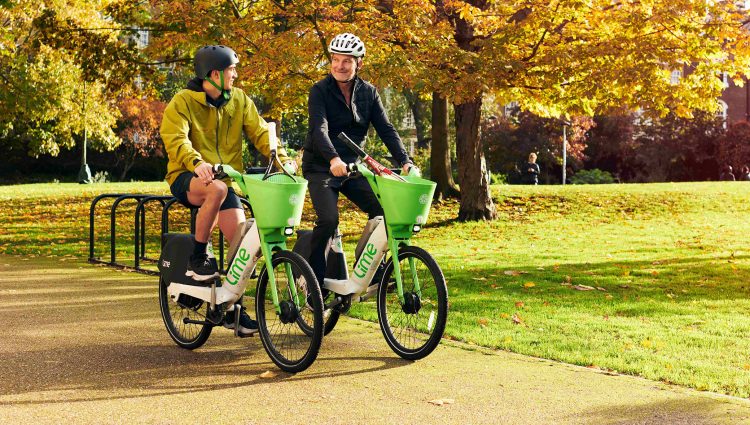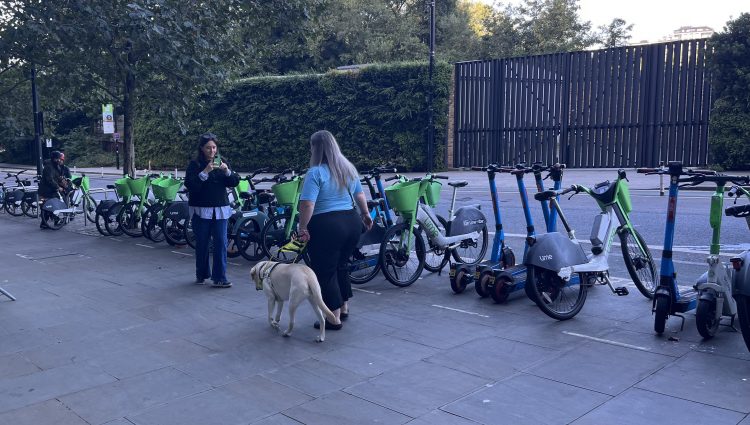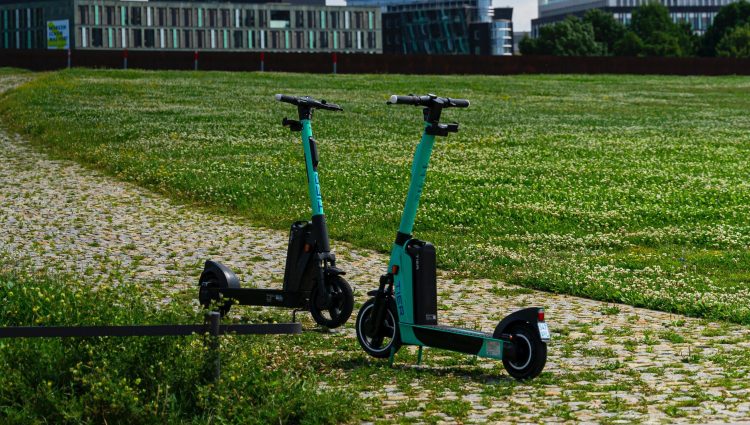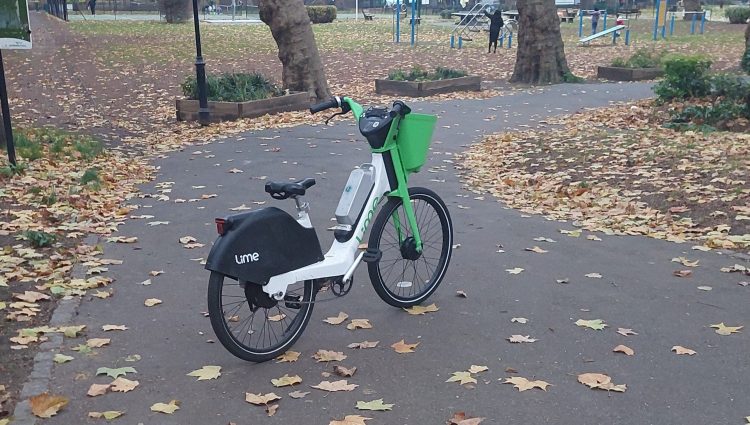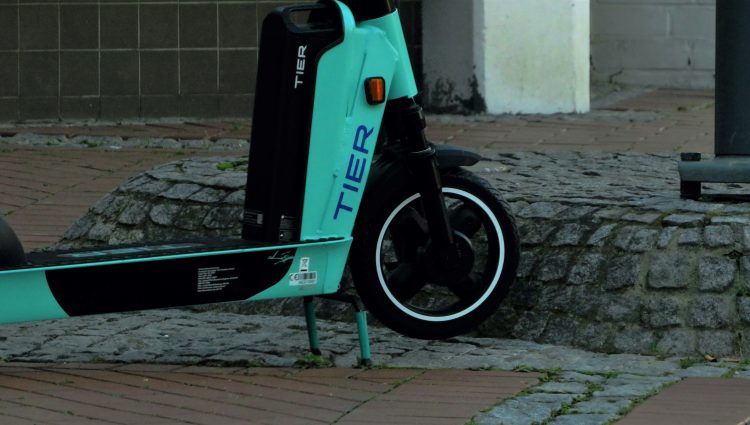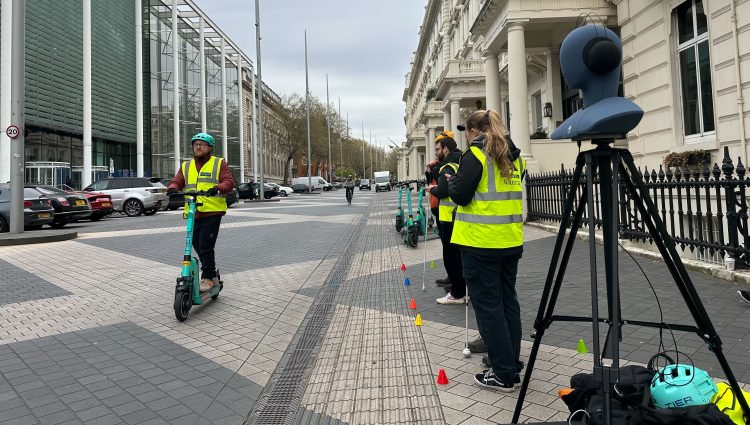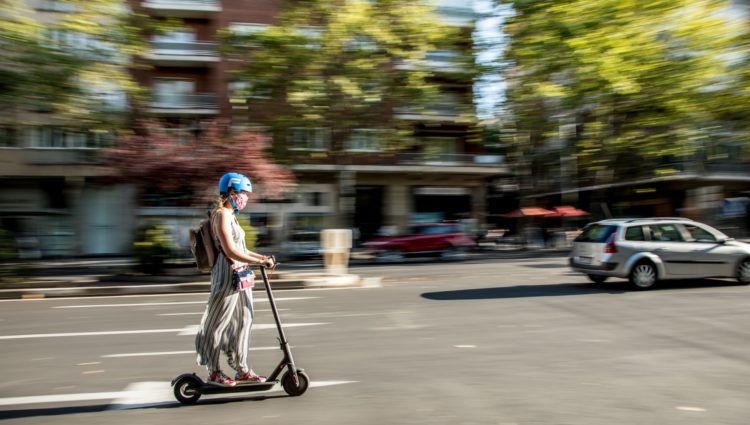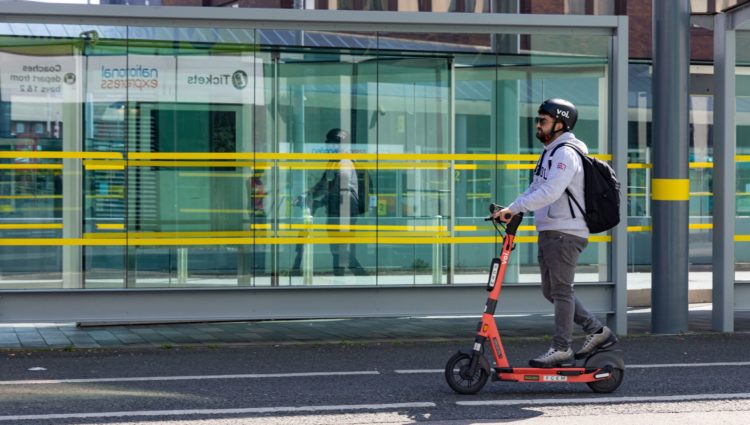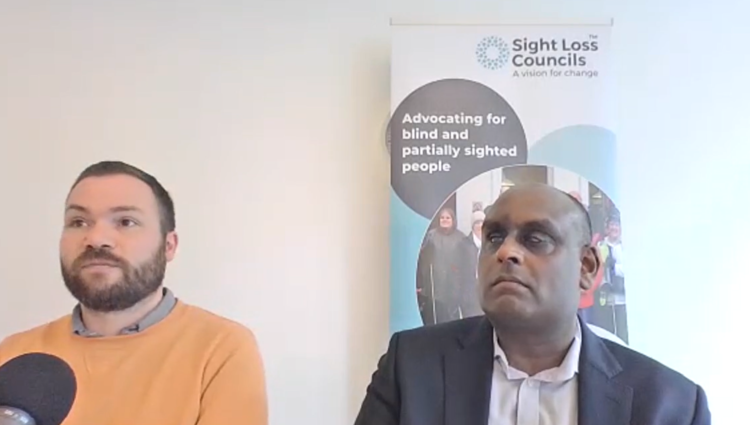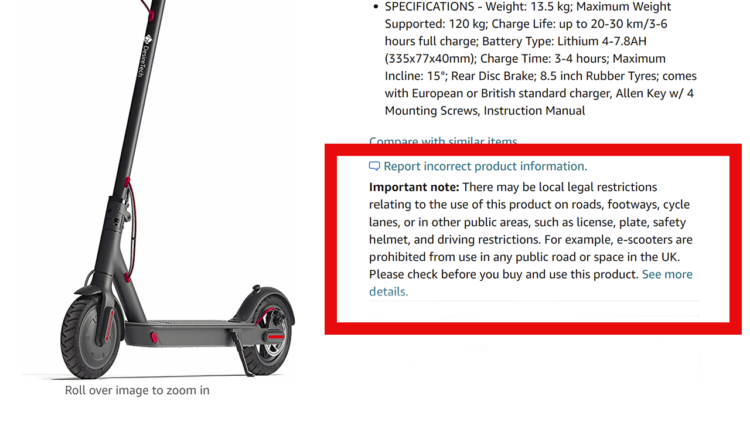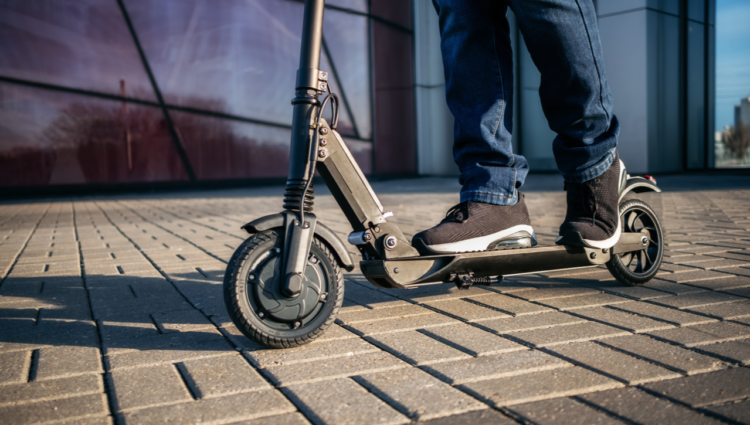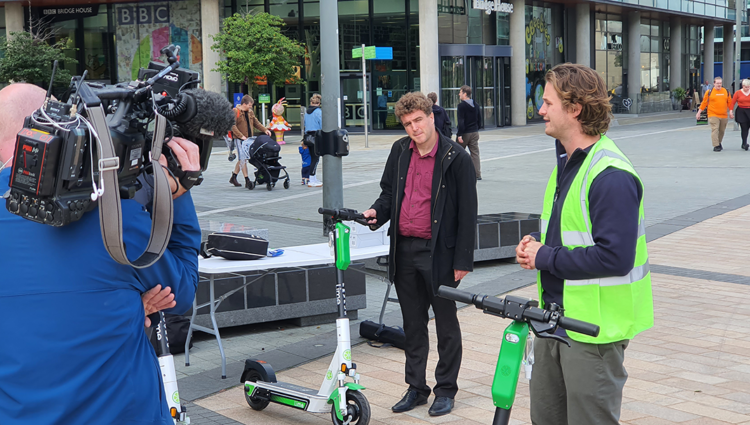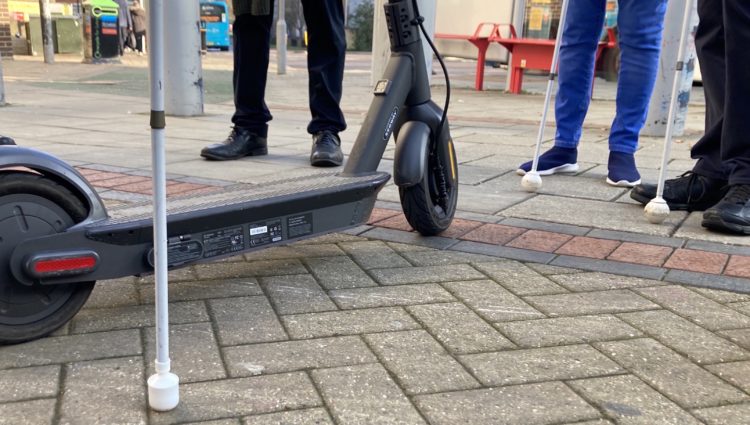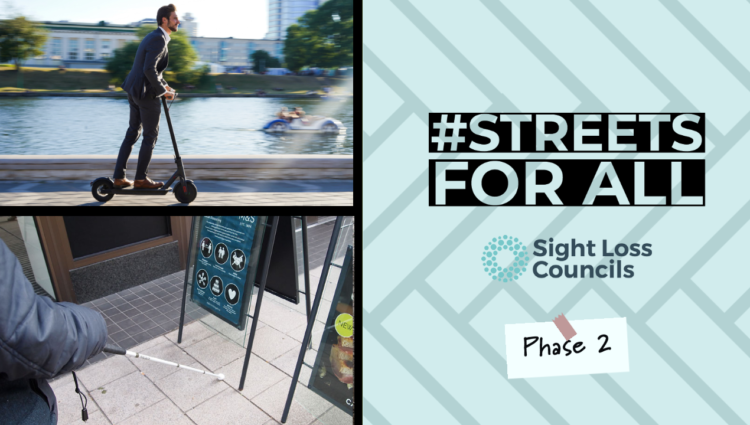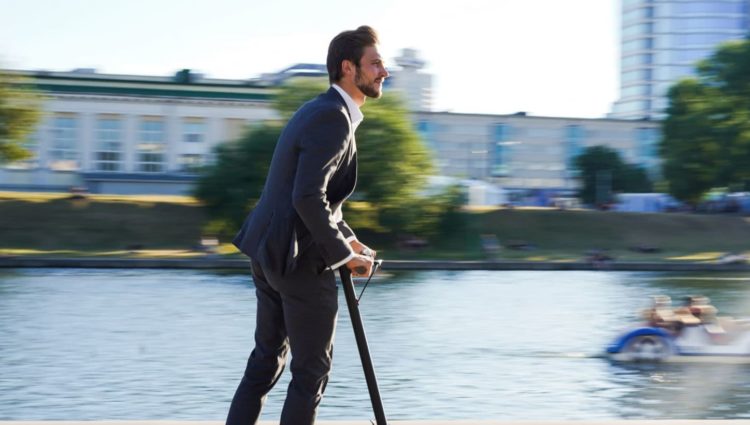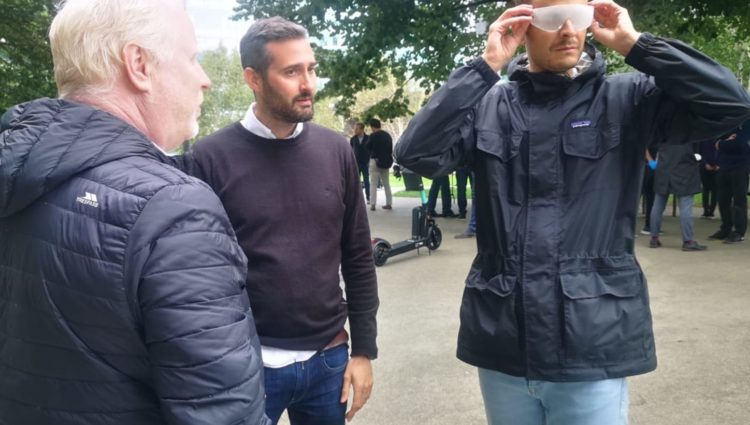E-bikes and e-scooters
The lack of regulation around shared e-scooters and e-bikes has resulted in major issues impacting on blind and partially sighted (BPS) people’s confidence to navigate our streets independently and safely, to live their lives. We are here to change this.
E-scooters and e-bikes are being left abandoned at the top of staircases, outside shop doorways and in the middle of pavements. This puts BPS people at risk of collisions, trips, and falls.
BPS are also reporting anxieties around not knowing the location of e-scooters travelling around them at high speed because they emit no sound, until it is too late.
Our work
Sight Loss Councils are working with a range of e-scooter operators to help them develop acoustic vehicle alert systems (AVAS). This will give blind and partially sighted people increased opportunities to hear and see e-scooters coming.
We are also working with a range of e-scooter and e-bike operators, and local authorities, to ensure that appropriate local parking policies are in place in e-scooter rental trial areas. We are also promoting parking etiquette amongst people who use them.
“We believe everyone should be able to navigate our streets independently and safely, enabling them to live the lives they want to lead.
“We are proud of our joint work with TIER to help ensure everyone understands parking etiquette and the hazard abandoned e-scooters and e-bikes can pose. We will also continue our joint work to develop and test a universal acoustic e-scooter alert.
“Our ultimate goal, using our lived experience of sight loss, is to work with businesses and services to ensure our streets are accessible to all.”
Haren Thillainathan, South West London SLC
Dockless shared e-scooters obstruct walkways and present dangerous trip hazards to pedestrians, particularly blind and partially sighted people. For long-term use, accessibly designed fixed docking stations are the safest parking solution. Where this isn’t possible, there must be designated parking bays for e-scooters which are separate from walkways.
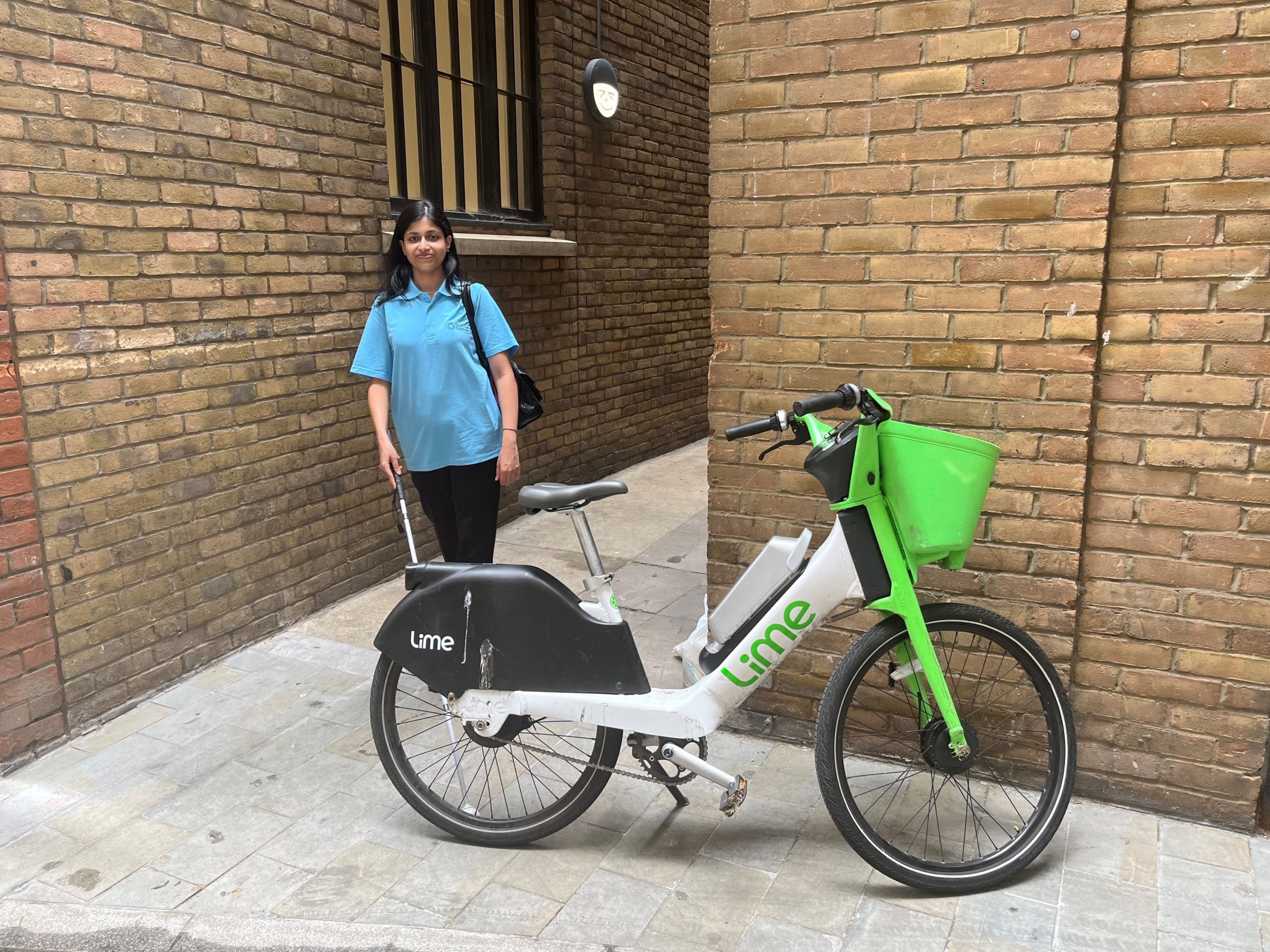
Vidya Nathan, London SLC member, encounters a Lime bike obstructing the exit to an alleyway
Where dockless schemes have been introduced, we have led the way in demanding change and highlight the negative impact inconsiderate e-scooter parking has on BPS people.
Alongside the change we are creating with operators and partners regionally across England, Thomas Pocklington Trust is also calling for government legislation. This is to include the installation of Acoustic Vehicle Alert Systems (AVAS) on e-scooters we are developing with operators, a 15.5mph speed limit for e-scooters and geotagging restrictions to prevent pavement use.

